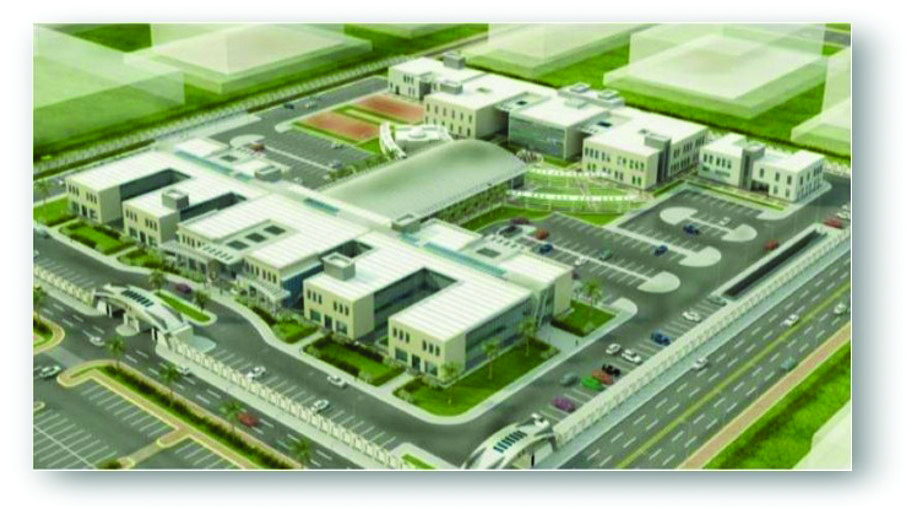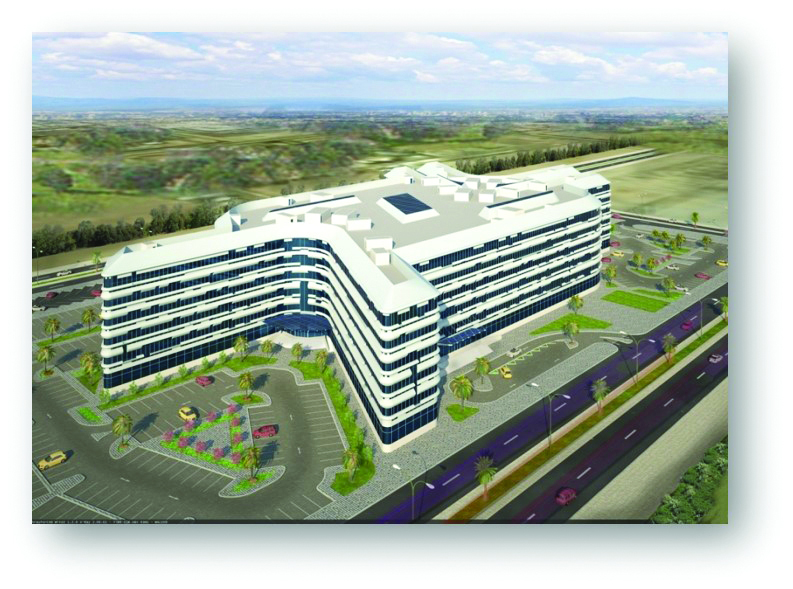By Majd Othman
KUWAIT: From a perspective of keeping pace with Kuwait's New Kuwait 2035 vision that aims to make the country a financial and commercial center, the Ministry of Public Works is striving to accelerate local projects to contribute to the country's development, with a large number of projects for citizens and residents.
To learn more about the ministry's projects, Kuwait Times spoke with Khadija Al-Mutairi, head of the planning and follow-up office at the construction projects affairs sector at the ministry of public works. Some excerpts:
Kuwait Times: What are the most prominent projects of the ministry of public works?
Khadija Al-Mutairi: The most prominent projects of the construction affairs sector, which contributes to making Kuwait a financial and commercial center attractive to investment, is the new maternity hospital project, which is one of the projects in the development plan. It is being implemented to achieve a high quality of healthcare through specialized health programs for citizens and residents according to international standards and by increasing capacity of hospitals.
The maternity hospital is considered one of the most environmentally-friendly projects designed according to the latest international regulations and codes. The children's hospital is also being designed in a way to achieve the best healthcare through high-quality services and by increasing the capacity of government hospitals.
The development of the Arabian Gulf Street waterfront is also one of the important projects that is being designed over an area of 1.8 km.
KT: How many projects were delivered during the past five years in various sectors?
Mutairi: In the construction project affairs sector, nine projects were delivered, which are the project of the Governmental Center for Tests and Quality Control (date of initial receipt 7/2/2018), expropriation management project (initial receipt date 16/8/2018), the project of the Governmental Center for Tests and Quality Control (initial receipt 7/2/2018), Public Authority for Civil Information project in Ahmadi (initial receipt date 24/10/2019), the project of the Kuwait Institute for Medical Specialties (date of initial receipt 13/8/2020), the project of the Ministry of Awqaf (date of initial (partial) receipt 7/10/2020), Hawally Courts Project (initial receipt date is 17/12/2020), project of the central market of the suburb of Granada (date of initial receipt 10/11/2021) and the Criminal Investigations Project (initial receipt date 11/11/2021).
KT: What are the percentages of project completion in the construction projects affairs sector?
Mutairi: According to our reports for May 2022, the percentage of our construction projects affairs sectors that is under implementation are the Ministry of Awqaf (completion of 91.73 percent), 89 percent of the Institute of Judicial Studies, 48 percent of the General Department of Criminal Evidence, 78 percent of furnishing the Palace Affairs Building, 72 percent of the new maternity hospital, 57 percent of five commercial centers affiliated to the ministry of commerce and industry, 98 percent of juvenile care homes, 99 percent of the General Administration of Facilities Security Building, 86 percent of Mubarak Al-Kabeer governorate building, 98 percent of the National Security Agency building and 13 percent of the General Administration of Financial and Administrative Affairs building of the ministry of interior.



KT: Are there projects that have been delivered to beneficiaries this year?
Mutairi: A project of the Institute of Judicial Studies is being handed over to the beneficiary. The initial receipt certificate issuance of the National Security Agency project is underway. As for the project of five commercial centers affiliated to the ministry of commerce, we are in the process of handing over two buildings in Dhahr and Hawally.
KT: How many projects are still in the design stages and what are they?
Mutairi: There are 20 projects in the design stages according to our report of May 2022 - Institutes of Music Studies and Dramatic Arts, schools of special education, Correctional Institutions Complex, General Department of Investigations, General Administration of Information Systems, completing the expansion of the headquarters of the Civil Information, children's hospital, family court of the Capital governorate and the completion of the design of the car park building, Investment Promotion Authority, Safat Post Office, family court of Jahra Governorate, Funaitees Center, Farwaniya Cultural Center, building of the General Authority for the Holy Quran and Prophet's (PBUH) Sunnah, Building of the office of the minister of state for National Assembly affairs, the Holy Quran Printing House, Volunteer Work Center, the new northern building of the Audit Bureau, maintenance of Hawally governorate buildings, other constructions, roads and networks.
KT: Are there any projects that have been implemented in the current year?
Mutairi: In the construction projects affairs sector, we have only one project that is about to be implemented which started in 2021 - the building of the General Administration of Financial and Administrative Affairs of the ministry of interior, whose commencement date was 18/5/2021.



KT: Did the COVID-19 pandemic impact the performance of projects during the current or last period?
Mutairi: The pandemic negatively impacted all projects since March 2020, so the ministry of public works had to take many early measures with the aim of protecting individuals first, because their safety is a priority that should not be compromised, as well as the continuation of work on projects, according to the prevalent circumstances and available capabilities. It was necessary to continue field visits to support work teams at projects and follow up work to ensure contractors' commitment to completing projects according to the scheduled timeline.
KT: What is the mechanism used to assign projects to engineers?
Mutairi: The projects are assigned to engineers based on the decisions and regulations issued, which are decided by the contract engineer and the assistant undersecretary for the concerned sector. They select the supervising engineer, the project engineer, and their deputies. On the other hand, there is still an ongoing study on the mechanism for selecting the supervising engineer, project engineer and their deputies.
KT: How do you keep up with the modern variables and specifications, including smart and environmentally friendly buildings?
Mutairi: Our design departments and consultants in the construction projects affairs sector in the ministry of public works are keen that these are within the specifications, as they are emphasized in our contracts with consulting offices for projects. We are focusing on buildings that are environment-friendly, such as the Expropriation Management Project.
.jpg)




